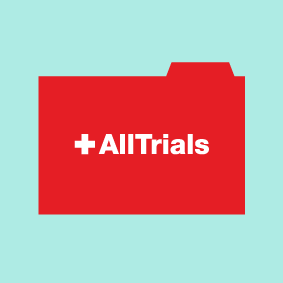Today is International Clinical Trials Day. To mark the event, here’s a post from Iain Hrynaszkiewicz reviewing the current state of open knowledge in medicine. You can see an earlier version on F1000’s blog.
The European Medicines Agency (EMA), the organisation which approves drug license applications from the pharmaceutical industry in Europe, has made important progress towards more open science. They hope to release anonymised data from drug trials online, but are faced with widely divided opinions on how data sharing should happen, as well as legal challenges in making it happen. The Open Knowledge community has a chance to help produce better outcomes for the beneficiaries of medical research.
On 30 April 2013 the EMA published advice documents, which cover five different aspects of clinical data sharing and are designed to help the EMA craft their policy on data release. The advice was sourced from around 200 volunteers from across the drug industry, academic research, publishing, and patient advocacy communities.
I’ll be the first point out this is not an open data policy – it’s a data sharing or data access policy. The EMA is, along with most medical research, a long way from implementing an Open Knowledge-compliant data policy – with data rapidly released in machine-readable formats to the public domain. But amongst the documents released there are some pertinent developments – worrying and promising in equal measures – that the open science community should recognise now.

###Copyright and licenses
One suggestion in the EMA’s legal advisory group was that all data submitted to the EMA would be protected by copyright under the EU Database Directive. This seems unlikely, as it assumes all trial data are in a database. Data take many forms within and without databases. Whether copyright applies to data is a much debated issue depending on, amongst other things, the legal jurisdiction. However, Creative Commons CC0 was proposed to the EMA as possible solution to this problem. Data repositories Dryad and figshare were used as examples along with the journal F1000Research, which was the first journal to use the CC0 public domain dedication waiver for data it publishes.
###Data formats and standards
Data standards breed efficiency – efficient reuse, sharing, understanding and computation. The advice to the EMA on data formats includes some promising recommendations. The advisory group was quick to recognise the importance of clinical data standards such as CDSIC and file formats that can be read with open source software. But to avoid delays in implementing the policy it seems likely that such standards will not be required and “any format shall be acceptable for all data until the policy is applied by stakeholders”. PDF, a format widely discouraged for data, was even recommended by some as a format for some types of data.
Many other issues were covered, and the documents are available with full version history.
Making more science data and research results available openly ultimately means faster progress in solving the most difficult problems facing the world. In medicine the benefits of doing more reliable science through open data are the most tangible. People’s health is improved. But much of the clinical research community are not even used to sharing or being able to share – publish – the reports of their work (papers in journals) let alone their raw data.
Publication bias, where positive trials are more frequently published than negative trials, has been found in more than 50 different treatments including widely prescribed antidepressants and anitvirals. A lack of available platforms is not the barrier. Many journals accept or encourage negative results – including F1000Research which just launched a fee waiver for negative results –and various repositories can accept negative data.
The EMA’s initiative comes at a time when there is unprecedented attention on access to information from medical research in the UK and EU. The UK Government’s Science and Technology Select Committee is reviewing large amounts of oral and written evidence on its recent inquiry on clinical trials. The Alltrials campaign for the reporting and registration of all trial results – an initiative of Sense About Science, BMJ and others and fronted by Dr Ben Goldacre – has amassed more than 50,000 signatures.
Medical research is finally moving, albeit slowly, to a new default of open. The open science and open knowledge community should support and guide the EMA and other interested parties in taking these important steps towards open data. And to mark International Clinical Trials Day, go sign the Alltrials petition! This is a real chance to change medical evidence for the better.
Iain is a member of the Open Knowledge Foundation’s Working Group on Open Data in Science, and is Outreach Director at Faculty of 1000 (F1000). Faculty of 1000 publishes four services that support and inform the work of life scientists and clinicians.









